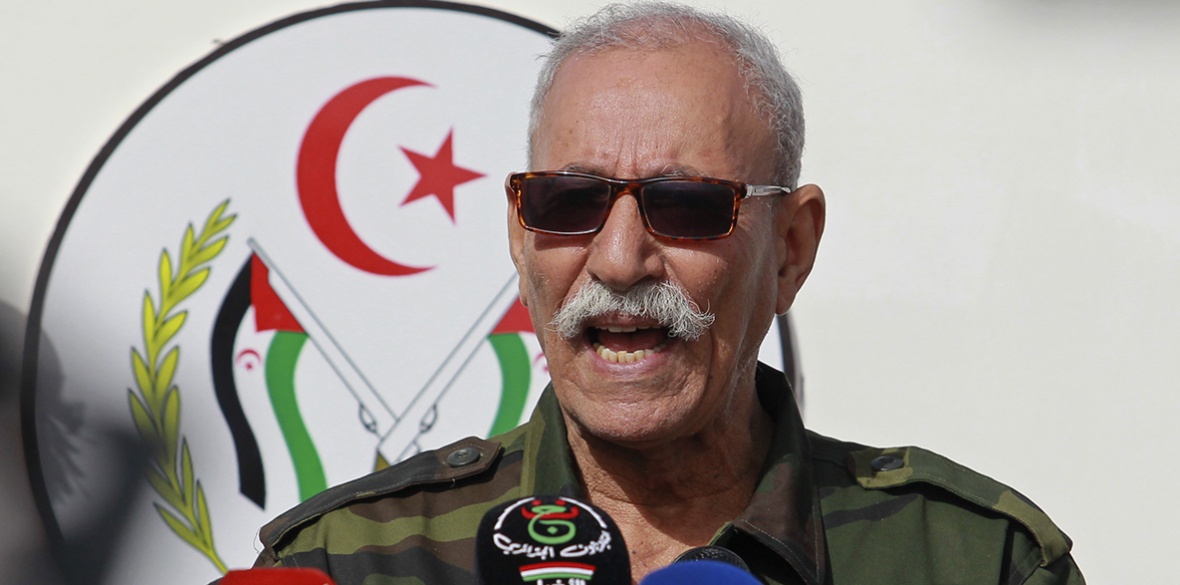This is the last article you can read this month
You can read more article this month
You can read more articles this month
Sorry your limit is up for this month
Reset on:
Please help support the Morning Star by subscribing here
LEADER of the Western Sahara independence movement Brahim Ghali denied torture and genocide charges when he appeared before a Spanish court via video link today.
He testified in the closed-door hearing from a hospital in Logrono in northern Spain where he has been being treated for Covid-19 since he entered the country under a false name in April.
Mr Ghali leads the Polisario Front, which has been engaged in a decades-long battle for independence from Morocco in what is known as “Africa’s last colony.”
He is also the president of the Sahrawi Arab Democratic Republic, a government in exile located in Algeria.
Law suits were brought against Mr Ghali by Fadel Breika, a former member of the Polisario Front who also holds Spanish nationality. His claims relate to allegations of torture at Sahrawi refugee camps in Tindouf, a town in western Algeria.
Other charges of genocide, murder, terrorism, torture and forced disappearances were made in 2007 by the Spain-based Sahrawi Association for the Defence of Human Rights.
The charges were initially rejected but the case was reopened earlier this year.
The judge overseeing the hearing has refused to take measures including seizing Mr Ghali’s passport, saying there are no “clear indications of the crimes of which he has been accused.”
Mr Ghali’s supporters insist the charges are trumped up and come due to pressure from Rabat at a time when relations between Spain and Morocco are deteriorating.
After the hearing, his lawyer Manuel Olle said: “The facts which form the basis of the accusation against him are absolutely and categorically untrue.”
Spanish Prime Minister Pedro Sanchez slammed Morocco for creating a migrant crisis last month, describing Rabat’s relaxation of border controls, which enabled thousands to reach the Spanish enclave of Ceuta, as “unacceptable and an assault on national borders.”
He told the media on Monday: “It is not acceptable for a government to say that we will attack the borders, that we will open up the borders to let in 10,000 migrants in less than 48 hours … because of foreign policy disagreements.”
Thousands in Spain are taking part in a nationwide “march for the freedom of the Sahrawi people,” an action supported by more than 400 social organisations. They are set to arrive in the Spanish capital Madrid on June 18 for a rally, and a delegation will meet the Foreign Ministry to highlight the case for independence for Western Sahara.
Western Sahara was annexed by Morocco and Mauritania in 1975 after the defeat of its Spanish colonisers — the two nations signed the Madrid Accords with Spanish dictator Francisco Franco in 1975, a week before he died.
Mauritania withdrew its forces in 1979 but Morocco refused to give up its claim on the land, insisting that Western Sahara was an integral part of the country.
But a United Nations commission of inquiry found that “the majority of the population within the Spanish Sahara was manifestly in favour of independence,” and the International Court of Justice delivered a damning verdict rejecting Morocco’s claim of precolonial historical sovereignty.
In 1991 the United Nations brokered a ceasefire on the basis that Morocco would hold a referendum on independence. But Morocco reneged on the agreement and later promises, instead offering regional autonomy to Africa’s last colony.












